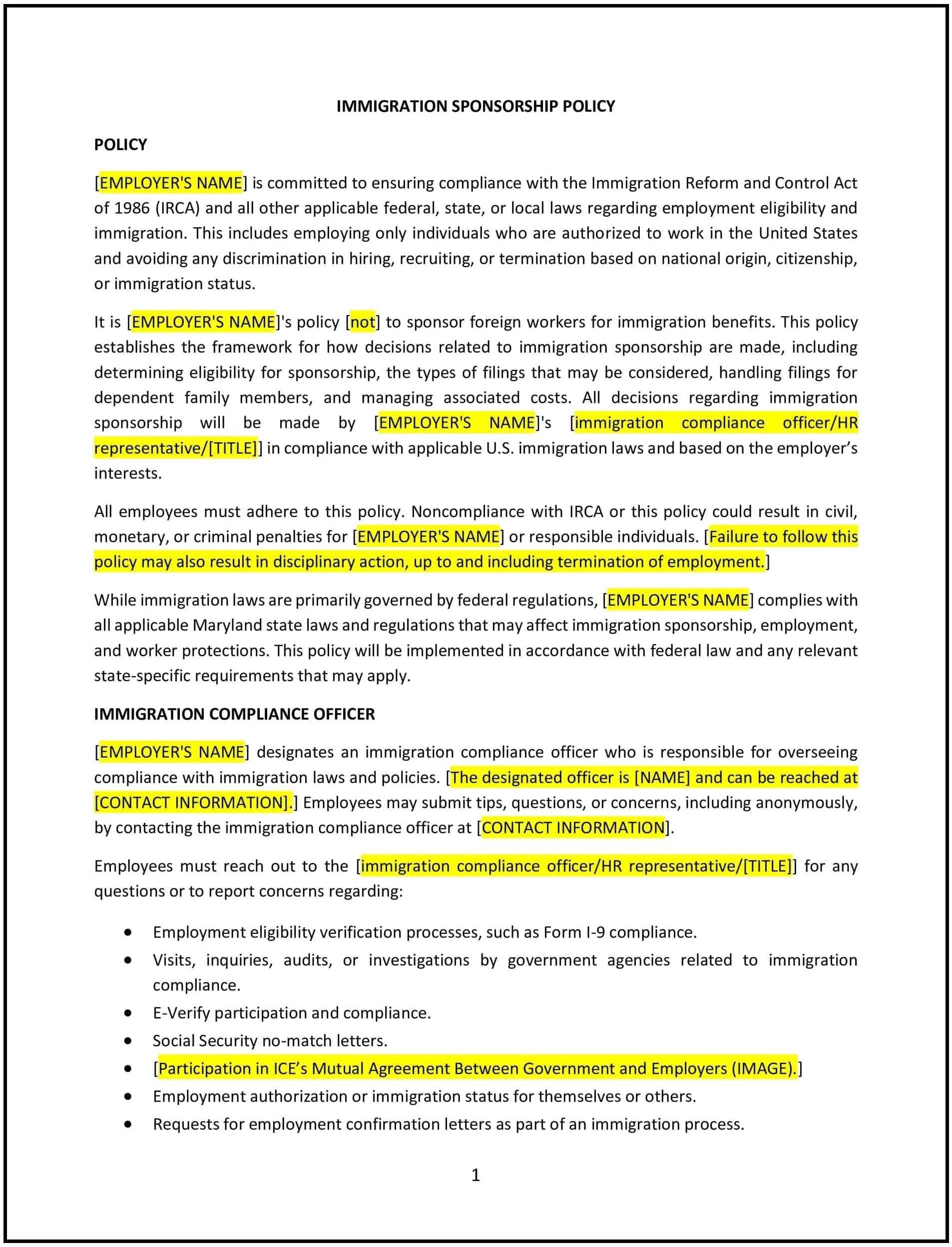Immigration sponsorship policy (Maryland): Free template
Got contracts to review? While you're here for policies, let Cobrief make contract review effortless—start your free review now.

Customize this template for free
Immigration sponsorship policy (Maryland)
This immigration sponsorship policy is designed to help Maryland businesses provide clear guidelines for sponsoring foreign nationals for work authorization. It outlines the process for offering sponsorship, the roles and responsibilities of all parties involved, and considerations specific to Maryland businesses.
By adopting this policy, Maryland businesses can attract top international talent, support compliance with immigration laws, and streamline sponsorship processes.
How to use this immigration sponsorship policy (Maryland)
- Define eligibility: Specify which roles or circumstances qualify for immigration sponsorship, focusing on positions critical to business operations.
- Outline sponsorship types: Include the types of visas the business may sponsor, such as H-1B, L-1, or green card sponsorships.
- Establish application processes: Detail the steps for initiating and managing sponsorship, including employee responsibilities and required documentation.
- Clarify financial responsibilities: State which costs, such as application fees or attorney expenses, the business will cover and any employee contributions.
- Include timelines: Provide estimated timeframes for each stage of the sponsorship process, such as filing deadlines and processing times.
- Reflect Maryland-specific considerations: Address any state-specific requirements or resources related to hiring foreign nationals.
- Promote confidentiality: Emphasize the protection of personal information throughout the sponsorship process.
Benefits of using this immigration sponsorship policy (Maryland)
Implementing this policy provides Maryland businesses with several advantages:
- Attracts top talent: Expands the talent pool by supporting the hiring of qualified international candidates.
- Streamlines processes: Provides a structured approach to managing immigration sponsorship efficiently.
- Reduces risks: Mitigates potential legal or administrative issues through clear procedures.
- Enhances transparency: Sets clear expectations for employees and management regarding sponsorship responsibilities.
- Reflects Maryland standards: Aligns with local labor market needs and federal immigration laws.
Tips for using this immigration sponsorship policy (Maryland)
- Communicate roles: Clearly define the responsibilities of the business, employee, and any third-party providers.
- Provide resources: Offer guidance on Maryland-based legal or community resources for sponsored employees.
- Track deadlines: Use tools or systems to monitor visa expirations and filing deadlines to avoid delays.
- Offer support: Provide ongoing assistance to sponsored employees, including guidance on adjusting to the workplace or local community.
- Regularly review: Update the policy as needed to reflect changes in immigration laws or business needs.